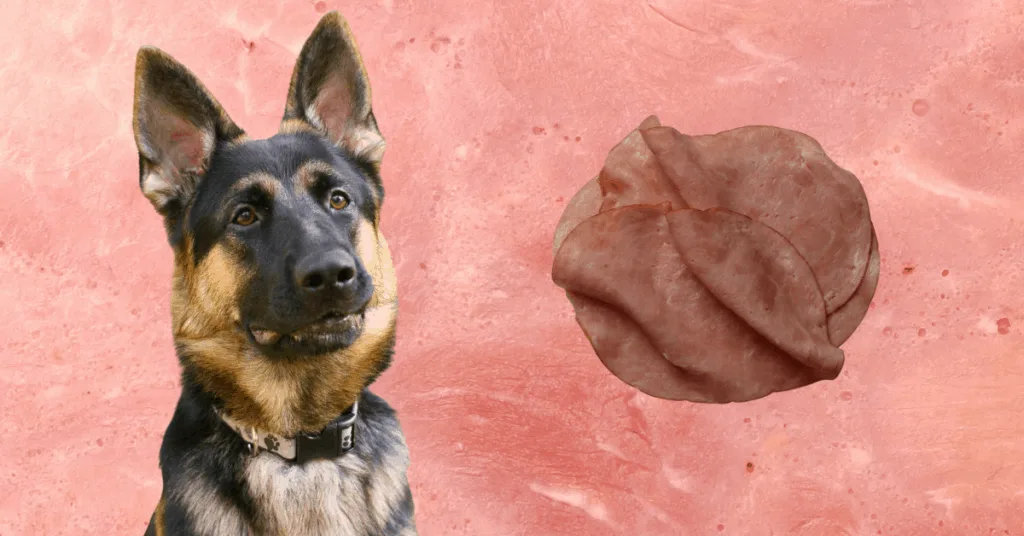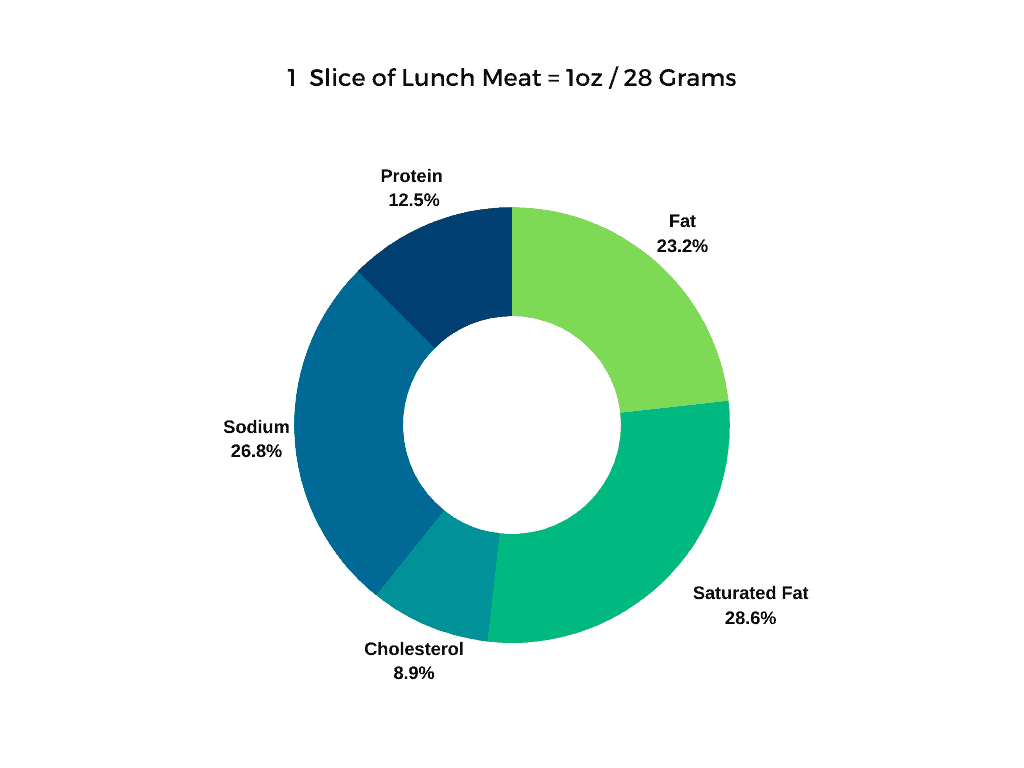
Be it salami, pastrami, or sausages – deli meat is a popular food-type among many. And, there’s little doubt that canines love wolfing down the stuff too. But, the problem is that lunch meat isn’t exactly one of the healthiest of snack options out there.
And what about your dog – is it safe to feed your dog lunch meat?
You should not feed your dog deli meat on a regular basis, as most cold cuts are considered processed meats, and are classified as ‘carcinogenic’ by the World Health Organization. Lunch meat also contains high amounts of nitrates, sodium, and fat – all of which are linked to a host of other canine health risks.
However, before you get too sad, you should know that there are plenty of healthful ways to treat your pup (infrequently) with specific cold cuts. But, before we get to that, let’s talk about why a doggy diet full of deli-meat is a definite no-no.
Click Here to Jump to a Section
Deli Meat and Drawbacks For Dogs
Canines belong to the scientific order of Carnivora, but that doesn’t mean what you think it does. Some animals within the Carnivora order are strictly carnivores; others are herbivores, and some are omnivores – like dogs and humans.
That means your pooch can derive its nutritional needs through a combo of animal and plant foods.
According to Cheryl Yuill (DVM, CVH) and Ryan Llera (DVM), “a canine’s diet should be a well-balanced blend of adequate amounts of vitamins, minerals, essential fatty acids, and certain amino acids.”
These elements help your furball with tissue generation and maintenance and other vital biological functions.
Additionally, canines have acquired the ability to digest cooked food over time – thanks to their human companions. At this point, I’m sure you’re wondering – well then, what’s the problem with deli meat?
The problem with processed meat lies within its ingredients. Unlike a raw-meat diet, feeding your doggo cold cuts involves introducing her system to harmful components linked to some pretty hefty health problems. Here are some of the drawbacks of feeding your dog deli meat:
High Sodium Content
Salt isn’t a bad thing on its own. Your doggo’s body needs salt for optimal cell function and to ward off electrolyte imbalance. And, food is your dog’s natural source of sodium.
That’s also why top dog-food brands make sure their products’ sodium content does not exceed the recommended daily intake.

Just one ounce (around 28 grams) of deli turkey can include up to 500mg of sodium. Whereas optimal daily sodium intake for dogs can vary between 0.5 to 1.5mg per 100 grams of dog food.
See what we’re getting at? Not to mention, there’s no way for you to be entirely sure about how much salt your pet is ingesting with deli meat.
Excessive sodium can lead to kidney, heart, and nervous system problems in dogs. And, if your dog already suffers from heart or kidney disease, then feeding her deli meat can aggravate existing health problems.
Too much salt also induces increased thirst in canines, which leads to frequent urination. And, in extreme cases, this can lead to dangerous levels of dehydration.
Nitrates
Cured deli meat can contain around 500 mcg of nitrates for every 100 grams of meat. In contrast, uncured deli meat has about 300 mcg of nitrates per 100g of meat.
Added nitrates in processed meats are utilized to preserve the meat and to maintain color. Unlike natural nitrates found in leafy greens, added nitrates in cured deli meat have been linked to cancer.
Research has also revealed that high amounts of nitrate may negatively impact your furbaby’s cardiovascular health.
Overall, added nitrates are the kind of ingredient you want to avoid, just in case. For a really in-depth look at just what human foods your dog can eat, be sure to check out this excellent article that we’ve written for you.
Fat
While this term often comes with a negative connotation, understand that dogs require fatty acids in their daily diet for a variety of reasons. For example, fats provide your pup with energy, and they also make the food taste more palatable. Fat also aids in the promotion of healthy skin and a shiny coat.
The wrench in the works when it comes to feeding your furball deli food is that her fat intake is already adequately covered by dog food. That means when you provide your canine deli meat, you’re running the risk of exceeding the required fat intake for your dog.
If your dog is the kind that requires a high-energy diet, you may get away with giving a few scraps of deli meat. However, if your pet needs a low-fat diet and is prone to obesity, regular cold cuts are definitely not an option.
Not to mention, a high-fat diet can also lead to pancreatitis in canines – which can lead to problems like diarrhea, vomiting, and loss of appetite, just to name a few.
How To Safely Feed Your Dog Deli Meat?
If your canine is absolutely crazy about lunch meat, or if you want to treat your pet to something special once in a while, you can follow a few precautionary steps to ensure your dog doesn’t develop any health concerns.
But, no matter the breed of your dog, its size, or any other detail – when it comes to deli meat, always remember ‘less is more.’
One of the best ways to safely get away with treating your pooch with cold cuts is to make sure you don’t feed deli meat too much or too often. Here are some other safety measures you can adopt:
Buy Low-sodium Options
There are lunch meat options available on the market that are low in sodium and sugar content. For example, chicken breast, turkey, or roast beef with little or no salt will help you treat your pooch to a treat it loves without having to worry about going overboard with sodium.
Look For Unprocessed Meats
You can buy lean and fresh proteins like chicken or turkey and slow-bake them to treat your pet with unprocessed meat. This way, you can avoid the headache of worrying about your canine’s fat, sodium, or nitrate intake.
Try Nitrate-free Products
Nitrate-free deli meat products are readily available in most supermarkets nowadays. You can select items like uncured turkey breast or chicken breast for some nitrate-free goodness for your dog.
However, be sure to check there are no asterisks (*) next to the nitrate-free label because generally, the asterisk contradicts the no-nitrate claim.
Many dog parents have been duped into buying what they believed was a nitrate-free deli option, only to discover the opposite.
Final Thoughts
Dog parents are always on the lookout for a wholesome treat for their lovable, furry companions, and who can blame them? But taking care of your canine involves more than catering to its tastes, you must take your pup’s overall health into utmost consideration.
If you and your furbaby can manage without deli meat, that’s probably the best option all-around. But, if your dog happens to be a picky eater who’s in love with the taste of lunch meat, then you can try out some of the options listed above to ensure your dog’s diet isn’t compromised in any way.
Also, you always have the option of discussing your canine’s food and treat with your vet. Your veterinarian is your number one source of reliable information that’s specific to your dog.
The presence or lack of health concerns will undoubtedly play a significant role in answering whether deli meat is a safe option for your dog or not.
